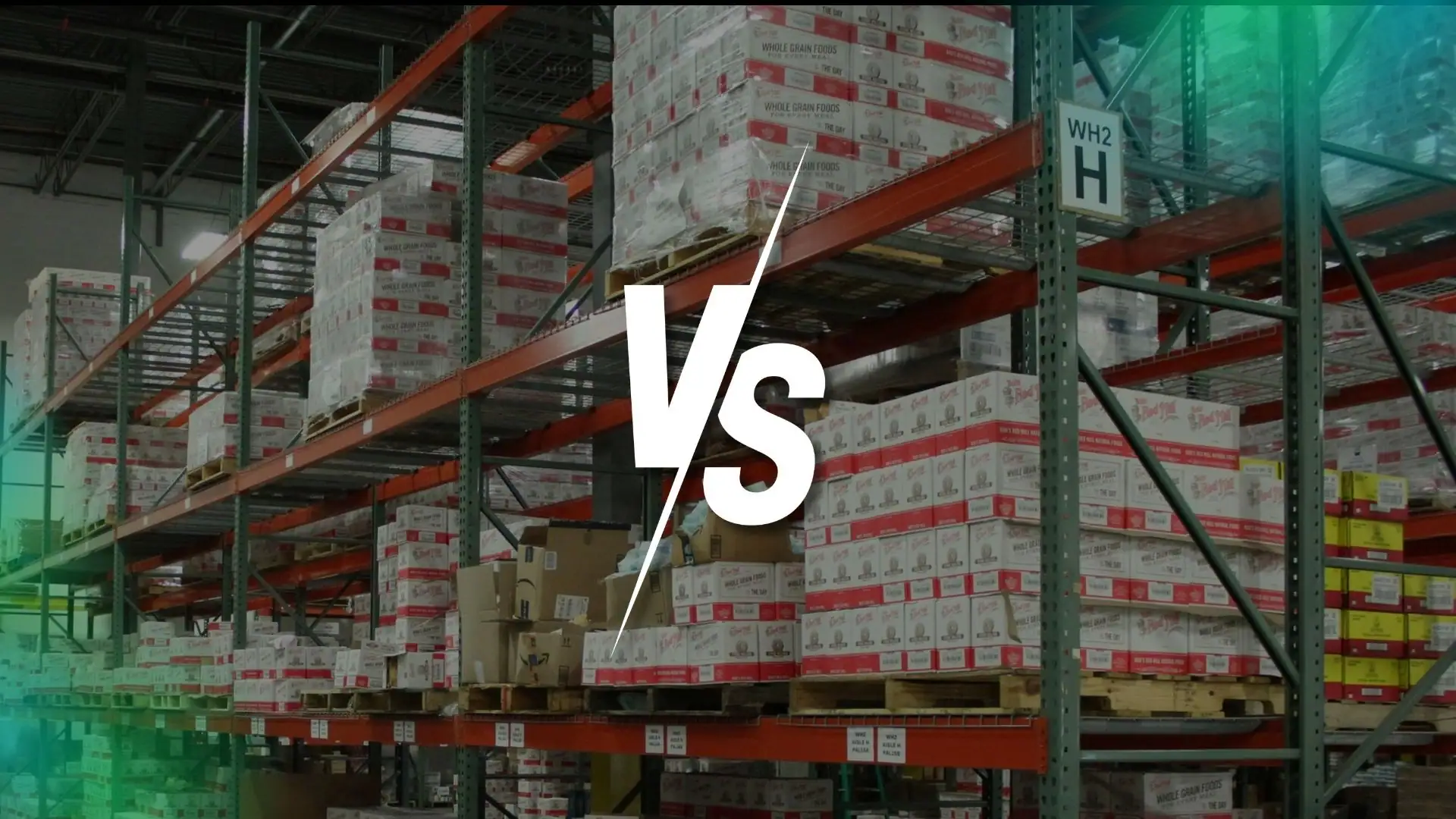.svg)
Best AI Powered Demand Planning Software for Small and Mid-Size Businesses (2026 Comparison)

[updated 2026]
Demand planning used to be the preserve of large enterprises with deep pockets. Today, thanks to advances in artificial intelligence and cloud computing, small and mid-size businesses (SMBs) can access sophisticated AI powered demand planning software, as well as modern demand forecasting tools, that were once out of reach. Having accurate demand forecasts helps SMBs reduce stockouts, lower carrying costs and improve cash flow. This article examines four AI-driven demand planning solutions suitable for SMBs and highlights why Flowlity is a particularly strong choice for those seeking a supply chain software for a small business.
1. Netstock
Netstock is a cloud-based supply chain management software for small businesses that unlocks data from the company’s existing ERP to improve demand forecasting and inventory management. As one of the more established demand forecasting tools, it is often considered by SMBs comparing different AI powered demand planning software options. It includes modules for demand forecasting and planning, supply planning, inventory optimization and material requirements planning (MRP), and comes with pre-built ERP integrations. Netstock uses monthly forecasting frequencies and is designed for small to medium-sized businesses seeking agility in changing market conditions. While Netstock provides a solid foundation for demand planning, its focus on high-level forecasts and monthly cycles may not be sufficient for businesses needing daily or SKU-level planning.
2. GMDH Streamline
GMDH Streamline is another AI-powered demand forecasting software that offers demand forecasting, inventory planning and production scheduling. Positioned among leading demand forecasting tools, it differentiates itself from Netstock by supporting dynamic simulation and working with multiple data sources. Streamline handles a broader set of modules beyond basic forecasting, making it suitable for companies with more complex supply chains. However, implementation can be more involved, and some SMBs may find the learning curve steep when evaluating various types of supply chain software for small business and comparing them against lighter alternatives.
3. Datup
Datup is a newer entrant in the demand planning market that leverages AI and deep learning to produce accurate forecasts. It integrates data from ERP, WMS, TMS and other sources and allows users to generate dynamic scenario forecasts. Datup supports collaborative planning, has a dedicated customer success team and claims implementation in as little as five weeks. The software is flexible, allowing custom filters and rapid forecasts for new products. Datup reports that its customers reduce forecast errors by 15–30 % and cut inventory levels by 5–25 %. While promising, Datup’s experience and customer base are still growing, so businesses should evaluate its scalability and long-term support when choosing between multiple supply chain management software for small business options or more advanced AI powered demand planning software.
4. Flowlity
Flowlity’s solution delivers sophisticated AI powered demand planning and inventory optimization capabilities tailored to the needs of small and mid-size businesses. Its probabilistic algorithms generate SKU-level forecasts and dynamically compute optimal inventory levels based on demand variability, lead times and supplier reliability. Flowlity’s cloud platform is intuitive and quick to implement, making advanced AI-driven forecasting accessible without the need for data scientists. For SMBs searching for supply chain software for small business, Flowlity stands out thanks to its ease of use and strong performance across planning workflows. Users can collaborate with suppliers and customers to share plans and align expectations, reinforcing Flowlity’s positioning as an effective supply chain management software for small business and a competitive alternative within the market of AI powered demand planning software.
Flowlity customers have achieved impressive results: Lemoine improved service levels by five points and optimised inventory, while Magotteaux reduced stock value by 13 % and stock coverage by 22 %. Customers also praise Flowlity for continuously introducing new forecasting models and enhancing decision-making.
Which Tool Is Best for Your Business?
Netstock offers reliable forecasting and inventory optimisation for companies seeking a simple, ERP-integrated solution, while GMDH Streamline provides deeper functionality and simulation for those willing to invest time in setup. Datup stands out for its rapid implementation and collaborative features, though its track record is still developing. Flowlity combines the strengths of these tools by providing AI-powered demand forecasting, dynamic inventory optimization and multi-party collaboration in a user-friendly package. For SMBs comparing demand forecasting tools or evaluating different types of supply chain management software for small business, Flowlity presents a strong balance between sophistication and simplicity. Its proven results and continuous innovation make Flowlity particularly appealing to SMBs aiming to achieve enterprise-level planning capabilities without the complexity and cost of traditional systems.
Conclusion
Investing in an AI powered demand planning software is one of the smartest moves an SMB can make to improve service levels and operational efficiency. Netstock, GMDH Streamline and Datup each offer compelling features, but Flowlity’s blend of probabilistic forecasting, dynamic inventory optimisation, collaborative planning and rapid implementation makes it a standout choice for fast-growing businesses in need of reliable supply chain software for small business or flexible demand forecasting tools.
Sources
- Netstock’s modules, ERP integration and focus on SMBs.
- GMDH Streamline’s broader module coverage and dynamic simulation.
- Datup’s AI and deep learning, dynamic scenario forecasting, fast implementation and reported benefits.
- Flowlity’s probabilistic forecasting, dynamic optimisation and collaboration.
- Customer results and continuous innovation at Flowlity.
Level up your supply chain with AI
Get a demoFAQ
Find everything you need to know right here.
Can small and mid-size businesses really benefit from AI demand planning?

Absolutely! Flowlity’s AI powered demand planning software for SMBs is cloud-based, fast to deploy, and designed to replace manual planning in spreadsheets.SMBs gain better control over stock levels, avoid overstock and excess inventory, and automate critical replenishment decisions—without needing data science teams.
Are AI-powered demand planning tools expensive for SMBs?

Not anymore. Compared to legacy supply chain management software for small business, AI solutions like Flowlity offer a lower total cost thanks to automation and faster ROI.
By reducing stockouts, excess inventory, and manual effort, SMBs typically see payback through improved customer satisfaction, cash flow, and operational efficiency.
How does AI improve forecast accuracy for small and mid-size businesses?

For SMBs, AI improves forecast accuracy by automating what is usually done manually in spreadsheets.
By combining demand sensing, sales data, and real-time data, AI detects patterns linked to seasonality, promotions, and demand volatility that smaller teams don’t have time to analyze.Unlike traditional tools, AI continuously learns from new information and adjusts forecasts automatically, helping SMBs make more granular, reliable decisions despite limited resources.
How does AI demand forecasting improve procurement and replenishment decisions for SMBs?

AI-powered demand forecasting helps SMBs order the right quantity, at the right time, and at the right price, without overloading procurement teams.By combining scenario planning, demand sensing, and probabilistic forecasts, AI automates replenishment decisions and reduces supplier risk.This ensures better alignment between procurement, inventory, and S&OP, while protecting profitability and freeing teams from constant firefighting.
What makes Flowlity different from other demand planning tools for SMBs?

Flowlity is designed specifically for SMBs that need enterprise-level accuracy without enterprise complexity.Unlike traditional demand planning tools, Flowlity delivers end-to-end, AI-driven planning with fast deployment, intuitive dashboards, and built-in collaboration.Its machine learning models automate forecasting, inventory optimization, and replenishment, enabling small teams to make data-driven decisions in real time—without relying on heavy IT projects.sma
How does Flowlity help SMBs reduce overstock and excess inventory?

Flowlity helps SMBs regain control over stock levels by continuously adjusting inventory targets based on demand variability, lead times, and supplier reliability.Using real-time simulations and multiple demand scenarios, SMBs can anticipate risks, avoid overstock and excess inventory, and improve service levels.The result: less cash tied up in inventory, smoother operations, and higher customer satisfaction, without slowing down the planning process.
.svg)




